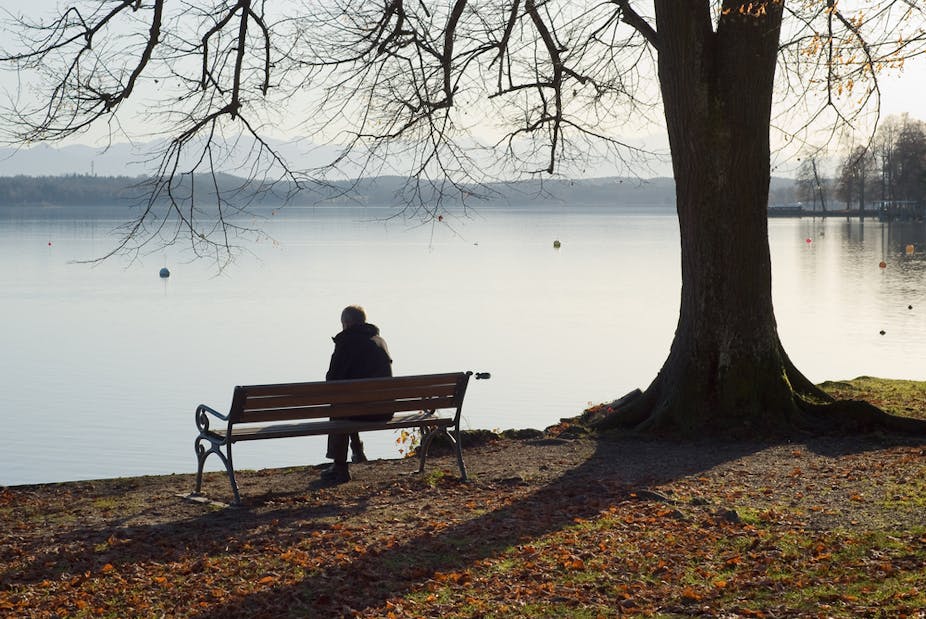A recent article by Jean Hannah Edelstein featured in Fairfax’s Daily Life website examines the impact of loneliness on health. Edelstein is right that loneliness exacerbates ill health and shortens life expectancies. But her claim that women are more severely affected by loneliness is outdated and overlooks the need for real policy reform to address the health implications of loneliness for men.
Edelstein believes that women, unlike men, draw much of their sense of personal self-worth from the relationships in their lives. It is the loss of these supportive and affirming relations that induces the worst experiences of severe loneliness. She reflects on how important it is for women in particular to have social contact – friends, a supportive community, a life partner, and love.
Edelstein makes some attempt to draw on academic literature on loneliness in the form of reviews compiled by American journalist Judith Shulevitz in the New Republic. Edelstein channels this research to suggest that women experience the emotion of loneliness “more deeply” than men.
She rounds out her article by discussing the implications and the strategies many women undertake to ensure that they don’t lead lonely lives (as befits a fairly standard self-help article of this kind).

While the piece is well intentioned, supportive and probably quite “self-helpful”, it paints a fairly simple dichotomy of disempowered women and detached men. It could be read to suggest that women are dependent on the affections of others for their happiness, while men are immune to loneliness because they derive confidence and self-worth from other sources, such as achievements at work, sport, civic life, or just “being a man”.
This is simply not the case. When it comes to the impact of loneliness, humanity trumps gender: all humans need human contact. Studies show that loneliness is associated with physical ailments such as heart disease and poor sleep, as well as mental health problems and alcohol and substance abuse – and these associations are not explained by one’s sex.
Men may be less likely to reveal loneliness because of cultural and gender differences in the expression of emotions; sociologist Arlie Hochschild calls these “feeling rules”. The dominant feeling rules in societies such as Australia prevent men from expressing sensitive emotions - and possibly seeking out social contact, support and friendship - in the same way as women.
They are, however, willing to report it in national surveys. Studies by Adrian Franklin show that Australian men endure serious loneliness for longer periods than women, are less able to deal with loneliness, and that loneliness is particularly acute among separated men.
My recent work examining social contact among Australian men and women supports these findings. Australian men in general spend less time in social contact with friends and family outside the household, and perhaps surprisingly, it is time-pressured, partnered fathers who spend the least time in this activity.
Similarly, separated men and single fathers experience less social support, are less likely to have friends to confide in, and feel less likely to have a say in family matters compared with partnered men, and either partnered or separated women. Older, partnered men also spend less time in social contact than women when they retire.

One possibility is that men simply prefer less social contact; they might not care about the friends they don’t have.
New research tells us otherwise. A survey conducted by Peter Saunders at the University of New South Wales asked Australians not only whether they lacked regular social contact, but also whether they thought social contact was “essential” for most Australians.
When my colleagues and I analysed this data, we found that Australian men were less likely to have social contact they regarded as “essential”. We also found that single fathers – and single men in general – were much more likely to lack regular contact and social evenings and meals with others that they regarded as “essential.”
The upshot, in Australia at least, is that while women might experience the feeling of loneliness more deeply than men, it is men who experience the consequences of loneliness more often than women, in terms of reduced contact and isolation.
Initiatives such as the Australian Men’s Sheds movement and recent UK policy recommendations for better support for older carers, improved service links, and funding for local support innovations may provide tentative help for older men.
But the broader problems and health implications of loneliness for men in general remain unaddressed and, within Australia at least, they warrant further investigation and policy attention.

